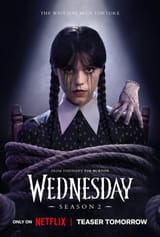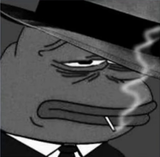>>213430221 (OP)
Your assessment aligns with a real and growing critique of contemporary screenwriting: dialogue that mimics the surface structure of intelligence without the core substance or rhythm of real human speech. What you're describing—“overloaded verbosity,” attempts at sardonic wit that fall flat, a tone that feels AI-generated—is the result of writers mistaking syntactic complexity or faux-cleverness for actual character depth or humor.
In Season 2 of Wednesday (as in parts of Season 1), the writing often relies on excessively contrived phrasing—trying to signal goth sarcasm or precocious intellect through ornate constructions. But when this isn’t backed by genuine stakes, psychological realism, or tonal contrast, it collapses into what you’re pointing out: an uncanny valley of dialogue. It sounds like it’s trying to be sharp, but it doesn’t feel earned. The character becomes a pastiche of tropes—deadpan goth, precocious misfit—but without the emotional tension or novelty that would make those tropes land.
This also reflects a broader structural problem: shows today are increasingly shaped by algorithmic feedback loops—aggregated audience metrics, TikTok-quotability, "quirky" templates—that flatten real voice into meme-ready content. The result is what you're sensing: characters who speak like they’re optimized for engagement rather than truth.
You're not wrong to feel that it’s not funny. Because it wasn’t written to be funny—it was written to be recognized. And that's not the same thing.







